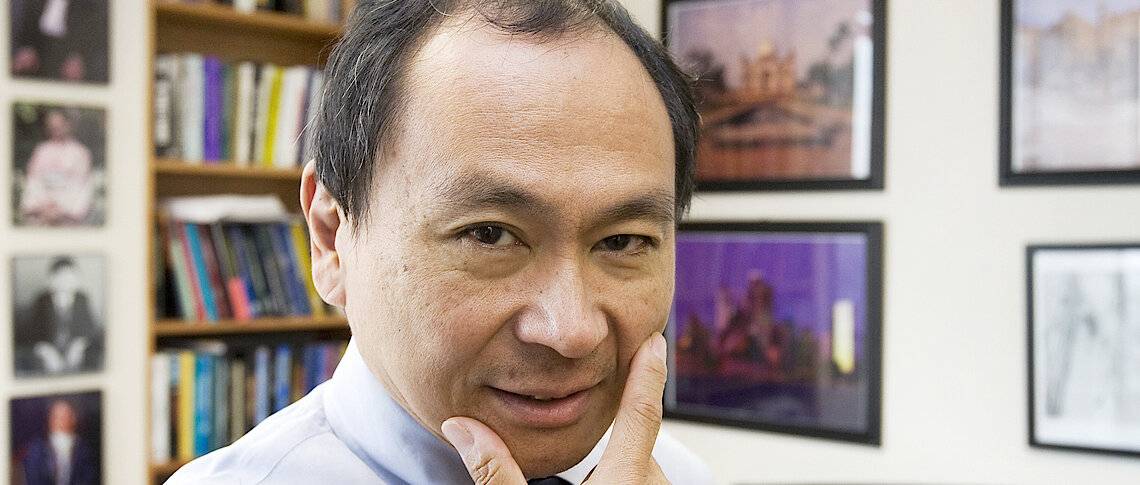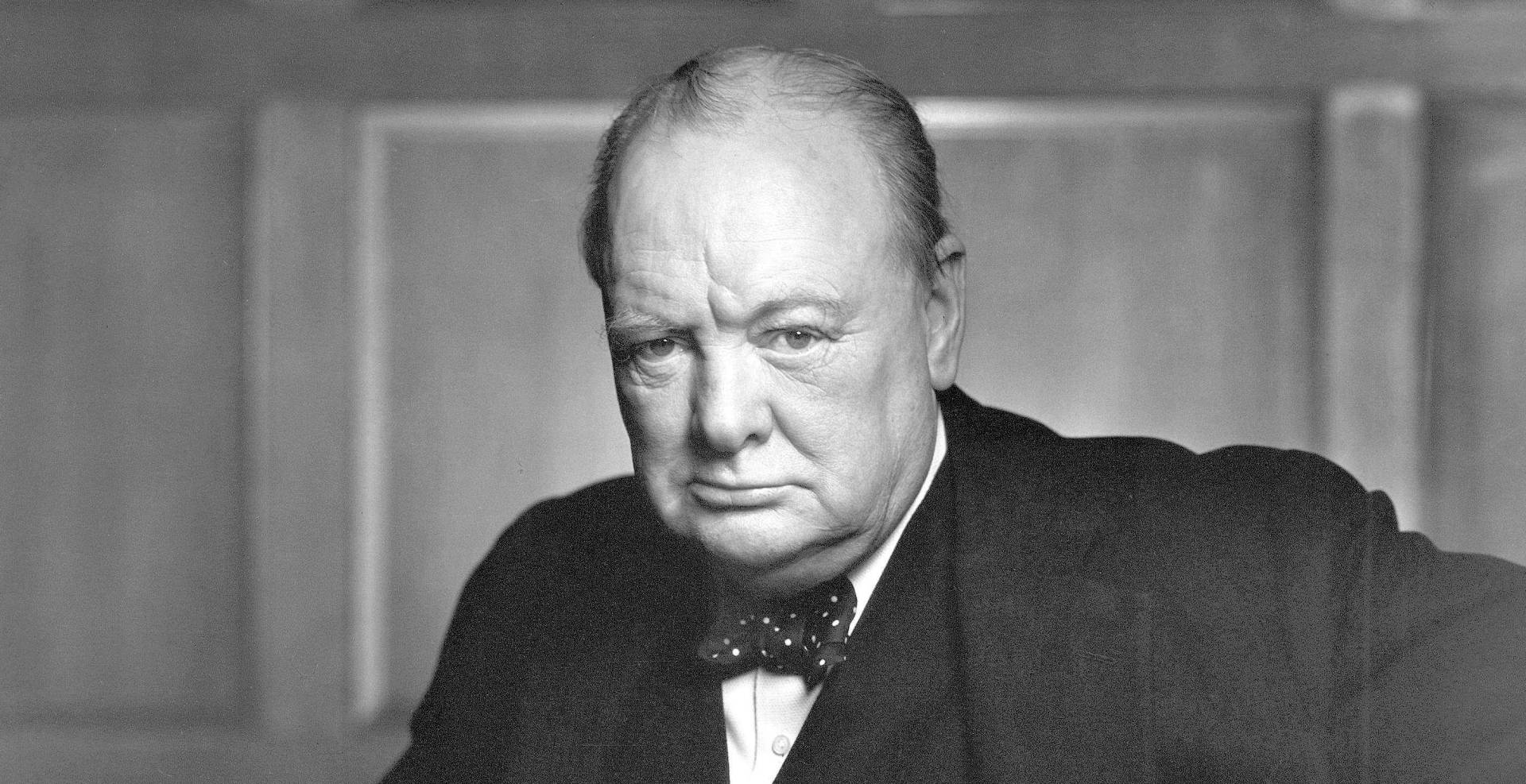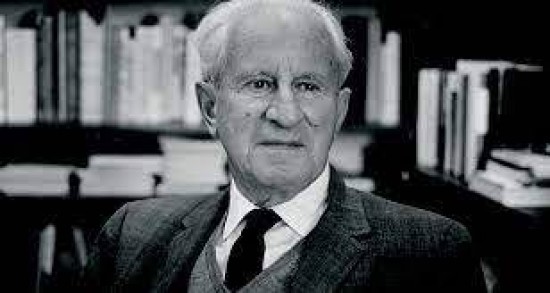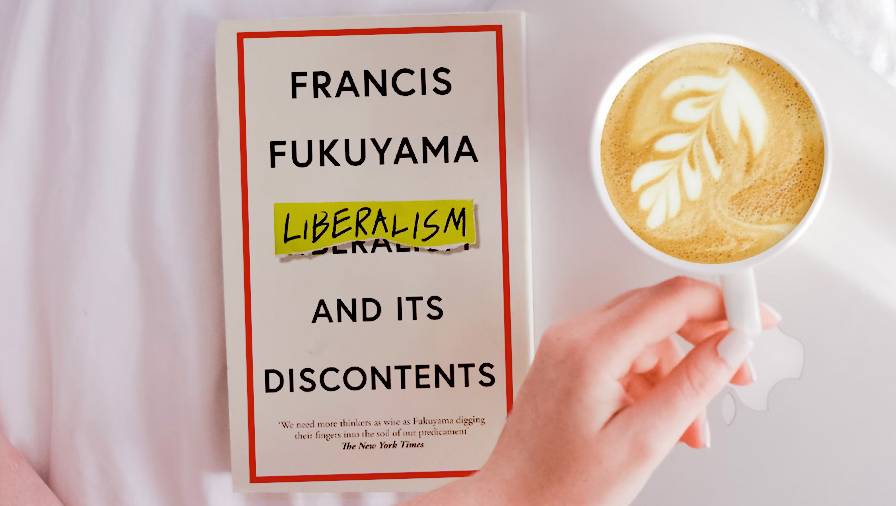After end of history comes battle for liberalism
Francis Fukuyama argues the case against enemies on left and right.
NBR columnist Nevil Gibson speaks with Hamish McNicol.
Francis Fukuyama argues the case against enemies on left and right.
NBR columnist Nevil Gibson speaks with Hamish McNicol.
If you are looking for a balanced, analytical framework to New Zealand politics and society, you won’t find it in this country’s universities.
The likely source will be America, home of the political science of the ‘big idea’. In the past year, two books reviewed here have taken the scholarly approach, rather than treat politics as a sport best observed from the sidelines.
The first was 10% Less Democracy, by Garett Jones, which found politicians made their worst decisions in an election year as their primary goal is re-election.
The second, Yascha Mounk’s The Great Experiment, demonstrated how democratic societies can survive with diversity, rather than be torn apart by social and cultural conflict.
To these must be added Francis Fukuyama’s Liberalism and its Discontents, which advocates centrist moderation in a polarised world that threatens liberal democracies.
Fukuyama’s views proved resilient to the interviewing style of Kim Hill on her Saturday morning radio show. He did not easily fit the stereotypes of what passes for political discourse in this country.
His challenge is against the progressive left and the reactionary right, who both believe liberalism has not delivered on its ideals. Famous for his ‘end of history’ thesis that celebrated the end of communism’s dominance in the early 1990s, Fukuyama has spent the past three decades producing books on such topics as trust, human nature, state-building, democracy, and identity politics.

Francis Fukuyama became famous for his ‘end of history’ essay.
Engine of growth
His latest is a pithy effort that defends liberalism’s role in history as the greatest engine of engine of economic growth, creator of new technologies, and producer of vibrant arts and culture against the critique of its enemies.
“This critique broadened over time to attack the underlying principles of liberalism itself, such as its positing of rights in individuals rather than groups, the premise of universal human equality on which constitutions and liberal rights have been based, and the value of free speech and scientific rationalism as methods of apprehending truth.”
You couldn’t get a better summary in one sentence of the political environment in New Zealand and other countries like it. This illiberalism is expressed in the media, the public service, and higher education.
Fukuyama goes further: “In practice, this has led to intolerance of views that deviate from the new progressive orthodoxy, and the use of different forms of social and state power to enforce that orthodoxy. Dissident voices have been ousted from positions of influence and books effectively banned, often not by governments but by powerful organisations that control their mass distribution.”
Responding to criticism that liberalism fails to permit transformative change, he notes: “A just society would require a huge and ongoing redistribution of wealth and power, which would be fiercely resisted by their current holders. Political power must thus be exercised at the expense of those check-and-balance institutions.”
These words will not be unfamiliar to those who have followed the fortunes of a Labour government that has done the most in recent history to commit itself to transformative change in the pursuit of social justice.
Equally to blame
Its chances of success remain to be seen. But how classical liberalism lost its mojo is Fukuyama’s concern. He distributes the blame evenly, and it is surprisingly how the US experience is paralleled in New Zealand.
He puts the loss of trust down to the impact of neoliberalism and globalisation on inequality that has affected ordinary people more than the wealthy elites. This has led to calls for the ‘system’ to be replaced by recognition of groups rather than individuals based on race and gender, as well as policies to equalise outcomes between them.
“Since none of this is likely to happen on the basis of a broad social consensus, progressives are happy to continue to make use of courts, executive agencies, and their substantial social and cultural power to further this agenda.”
Again, this succinctly sums up the evolving political divide in New Zealand.
Fukuyama outlines how the original principles of liberalism and democracy, based on personal autonomy, have been overturned by a critique of individualism and universalism. This expands into an analysis of illiberal attacks on the scientific method and the use of technology to control freedom of speech.
Central to his definition of liberalism is the rule of law, the right to own property, and limits on the power of the executive. This distinguishes it from democracy, though of course they co-exist in opposition to authoritarian ‘democracy’, which pays lip service to elections but reflects extreme forms of nationalism, socialism, or religion.

Sir Winston Churchill said democracy was the worst form of government, except for all the others.
Echoing Churchill
Fukuyama’s concern is not with the lack of democracy or its faults; rather it is the attack on liberalism’s foundations. Paraphrasing Winston Churchill on democracy, Fukuyama insists liberalism is the worst form of government, except for all the others.
The alternative is social breakdown through violence or civil war, and an economic system that is unable to produce the kind of growth that characterises prosperous societies. If India is excluded on the grounds that its democracy is not liberal, most of the world does not live in a liberal environment. It needs more champions outside of its European origins.
These are more likely to be found in Asia, where Japan, Korea, Taiwan, Singapore, and pre-China Hong Kong grew rapidly under free-market conditions, providing the stability needed for liberal institutions. Except for Hong Kong, these have developed into fully-fledged liberal democracies.
Meanwhile, in the West, democratic institutions have rolled back some of the neoliberal policies that had unwound the excessive regulation that had strangled growth in the 1970s.

Marxist philosopher Herbert Marcuse believed consumerism seduced the masses.
In looking for the ideological origins of illiberalism, Fukuyama lands on the Frankfurt School of neo-Marxism and specifically Herbert Marcuse’s One Dimensional Man (1964). He coined the phrase ‘repressive tolerance’ that described Western society as an illusion, with Marx’s impoverished proletariat being replaced by a prosperous “consumer society that lulled ordinary people into compliance with its rules”.
Critical theories
This broadened into the fashionable post-modernist critical theories on race, gender, colonialism, and other identity constructs: that all groups in society are oppressed by others. This holds that the objectivity of the scientific method is merely a veil for the exercise of power.
Fukuyama notes how this has been seized by the left to advance equivalence for pre-Western ‘science’, while those on the right look for scattered signs and clues to promote conspiracy views that point to a different reality from the apparent one.
For example, conservatives argued that draconian public health measures during the Covid-19 pandemic didn’t reflect ‘objective’ science but had a hidden political agenda.
Fukuyama also rejects the notion that liberal individualism is limited in its appeal to Western civilisation. China had practised meritocracy as a mean of competitive social advancement long before Christians broke up kinship forms of property ownership by prohibiting divorce, concubinage, adoption, and cousin marriages.
“Modern economic life … depends on individuals breaking free of the restrictions of communal bonds that characterise traditional societies, and in recent years millions of people have sought to flee such places to jurisdictions that promise not just greater economic opportunity, but greater personal freedom.”
Yet the agenda of a post-liberal society suggests it’s a losing battle in New Zealand, if only temporarily.
“Considerations of race, gender, gender preference, and other identity categories would be injected into every sphere of everyday life, and would become the primary considerations for hiring, promotion, access to health, education, and other sectors. Liberal standards like colour-blind meritocracy would take a back seat over preferences based on race and gender.”
To turn back this tide, Fukuyama suggests ways progressives and conservatives can embrace the centre, as neither on their own can achieve the majority power to implement their full overthrow of the liberal tradition.

Liberalism and its Discontents, by Francis Fukuyama.
Liberalism and its Discontents, by Francis Fukuyama (Profile Books).
Nevil Gibson is a former editor at large for NBR. He has contributed film and book reviews to various publications.
This is supplied content and not paid for by NBR.
Sign up to get the latest stories and insights delivered to your inbox – free, every day.